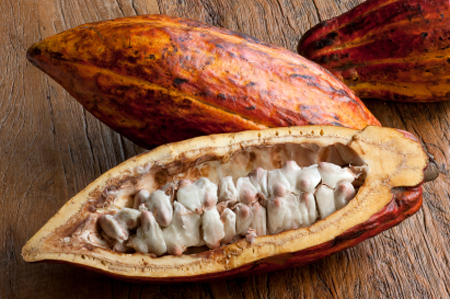 (Wall Street Journal) – As chocolate lovers ready themselves for an Easter weekend of sticky fingers and tight waistbands, the world’s cocoa processors are struggling with a problem even Willy Wonka himself would struggle to solve: a glut of chocolate factories.
(Wall Street Journal) – As chocolate lovers ready themselves for an Easter weekend of sticky fingers and tight waistbands, the world’s cocoa processors are struggling with a problem even Willy Wonka himself would struggle to solve: a glut of chocolate factories.
As consumption of chocolate has risen, so has the capacity for turning raw beans into the cocoa butter and powder that become chocolate bars and eggs.
Rising cocoa prices have prompted the construction of factories from Indonesia to Ivory Coast over the past five years, in a bid to serve rising demand and industrialize the industry in cocoa producing nations.
But demand hasn’t risen fast enough to make use of all the new capacity that has come onstream, analysts and traders say.
“The cocoa processing industry is currently facing a challenging period,” said the London-based International Cocoa Organization in its quarterly report.
The organization blamed the expansion on overcapacity built up before the financial crisis, “when demand prospects were very strong.”
The world’s capacity for processing beans had grown by 400,000 metric tons in the last five years—about four times faster than demand, according to Willem Zimmerman, product manager at Cargill Cocoa & Chocolate.
Speaking at the Chocoa festival in Amsterdam last month, Mr. Zimmerman said this expansion, paired with the rising prices for raw beans, had damaged industry margins.
“As a processor, we’re in the middle,” said Mr. Zimmerman.
Despite too much capacity the factories keep running, but don’t process enough beans to cover their costs or turn a profit, processors say.
Cargill, Switzerland-based Barry Callebaut AG and Singapore-based Olam InternationalLtd. trade or process nearly 60% of the world’s cocoa beans, according to industry watcher Cocoa Barometer. Archer Daniels Midland Co. agreed to sell its cocoa and chocolate businesses to Olam and Cargill last year.
In mature markets such as Germany and the U.S., chocolate consumption is already high, leaving many large companies relying on emerging markets such as China and Brazil to fuel growth. However, emerging markets are notoriously difficult to forecast.
“Probably [the industry] overestimated the expected demand from China, India and Brazil,” said Pinar Hosafci, senior food analyst at Euromonitor International in London. “Demand is vulnerable.”
Meanwhile, world cocoa prices have risen over the last year, driven by worries over unusually dry weather in West Africa and speculative buying in a period when nearly every other commodity slumped.
London-traded cocoa futures are up 13% in the last 12 months, while New York-traded cocoa futures are up 6.6%. The markets are roughly equal in volume, but serve slightly different markets.
Rising retail prices, too, have likely hurt demand.
The price of an average tablet chocolate bar rose an estimated 5% in the U.S. in 2015, and about 2% in the U.K., according to Euromonitor.
But even giants have felt the strain of melting margins.
In January, Barry Callebaut reported sales volume in its global cocoa unit fell 2% in the first quarter of the fiscal year, blaming the drop on tighter margins.
While there have been some closures of chocolate factories, including a Cargill plant in Pennsylvania last October, most factories are unlikely to close soon, according to a European cocoa processor.
“The overcapacity that exists doesn’t stop people adding more capacity,” the processor said. Faced with the expansion and consolidation of major grinders, midsize processors are forced to expand their factories just to maintain market share, he said.
Cocoa-producing countries, meanwhile, have clamored for factories, offering tax breaks and incentives to international companies that can help industrialize their industries.
Last year, Ivory Coast—the world’s top producer—overtook the Netherlands to become the world’s top processor. The government wants that share of bean processing to grow, and if successful, that means there are more chocolate factories to come.




